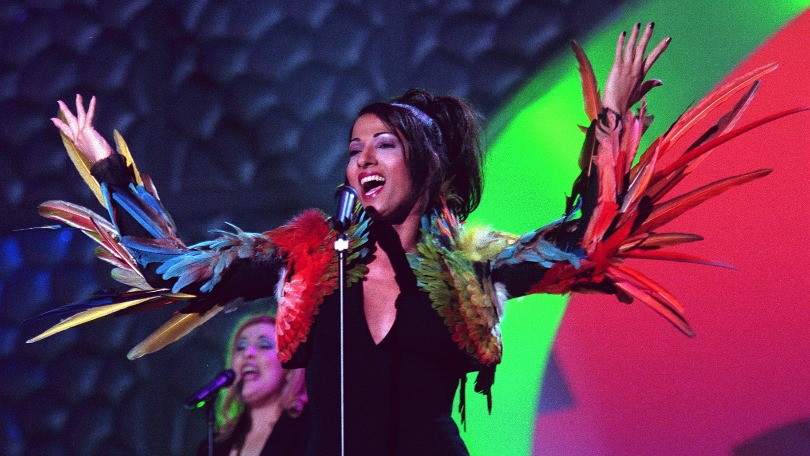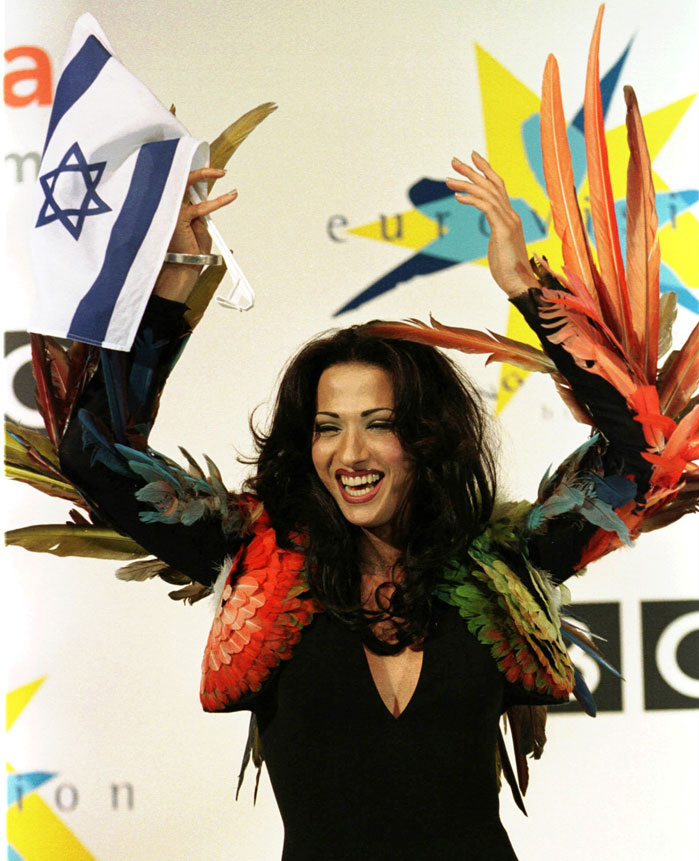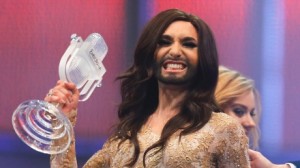Why Dana International’s 1998 Eurovision victory remains a watershed moment for LGBTQ representation
As a transgender woman, Sharon Cohen aka Dana International was not there as a comedy act - nor should she have been, writes Juno Dawson.
By Will Stroude

This article first appeared in Attitude issue 296, June 2018.
The Eurovision Song Contest is properly gay. It just is, even though it’s actually quite difficult to pinpoint why it’s the most beloved day of the year on many a queer calendar.
Is it the spangly costumes? Is it the hi-NRG pop ditties? Is it the oiled backing dancers half-in/half-out of traditional national dress? Or is it the fact that it gives us a way to be frenziedly competitive while avoiding contact sports?
There have been a couple of occasions, however, where the LGBT+ subtext has become plain text and perhaps the most notable example was Dana International.
Rewind 20 years. Having won with Katrina and the Waves a year earlier, the UK hosted the contest in Birmingham. Israel sent one Sharon Cohen, better known by her stage name, Dana International, as their representative.
Cohen had narrowly missed out three years earlier in 1995 when her song came second in Israel’s selection process. But in 1998, with the song ‘Diva’, she was to conquer and — ever so slightly — change the world.
Sung in Hebrew on the night (and translated for the UK chart version), ‘Diva’ is an up-tempo ode to famous women of history: Aphrodite and Cleopatra. It’s camp, as all the best things are, but was sung absolutely straight-faced.
As a transgender woman, Cohen was not there as a comedy act, nor should she have been. She did have a history performing as a drag queen but transitioned in her teens, and had a successful, respected recording career in Israel.
I clearly remember watching the Eurovision final with my family and they were shook. “That’s never a bloke,” my grandfather said, peering over his glasses.

I wasn’t aware of it at the time, but this was a watershed cultural moment.
Up until that point, transgender women very rarely featured in the mainstream media. Yes, some of the discourse around Cohen was crass and sensationalist, but she was there to do a job. She looked gorgeous, sang beautifully, and won.
Looking back, there’s a glorious, naïve simplicity to it. I wonder now if a transgender woman in the media would just be allowed to be good at her job without having to take part in endless news debates about trans rights. Could Cohen just be a singer without also needing to be an activist or role model?
Whether she meant to be or not, Cohen was undoubtedly at the forefront of what we now see as trans representation.

Sixteen years after Dana International won, drag performer Conchita Wurst snatched the trophy, in Copenhagen in 2014, despite Russia’s attempt to censor her.
Perhaps that’s why Eurovision is so beloved by LGBT+ people: it provides a celebratory space for performers such as Dana International and Conchita Wurst to excel at what they do.
The Eurovision Song Contest semi-finals air on Tuesday 18 May and Thursday 20 May on BBC Four at 8pm BST in the UK.
The Eurovision Grand Final airs this Saturday 22 May on BBC One at 8pm BST.
